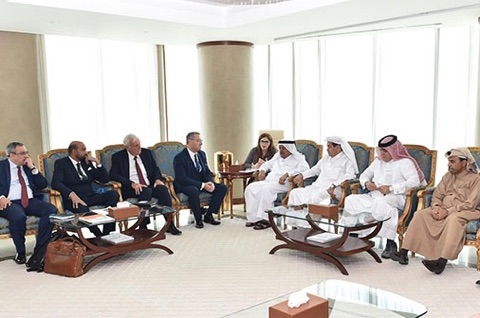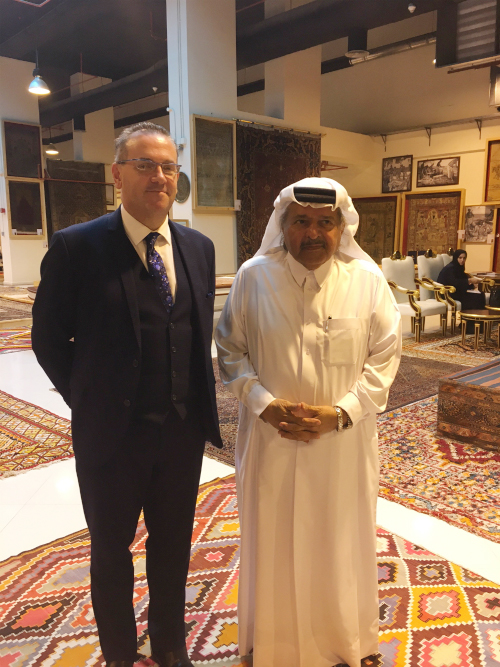Qatar trip has Birmingham out of the blocks for post-Brexit Britain

Birmingham city council leader John Clancy has hailed his recent trade mission to Qatar as a significant step in the battle to unlock millions of pounds worth of investment in a post-Brexit landscape.

Cllr Clancy has returned from a three-day trip to Doha in the oil-rich Gulf state, where he met potential investors who expressed an interest in helping to fund regeneration projects and build new housing in Birmingham.
The council leader’s trip coincided with Prime Minister Theresa May’s announcement of Britain’s negotiating stance over leaving the European Union, signalling a new era in UK global trade.
Cllr Clancy’s trip is believed to be the first example of a British council visiting Qatar with the intention of drumming up support for inward investment.
Birmingham will also host a UK-Qatar trade conference in March, the first time such an even has been staged outside of London.
Cllr Clancy was accompanied by Neil Rami, the chief executive of inward investment group Marketing Birmingham, and Waheed Nazir, Birmingham City Council’s strategic director for the economy. A representative from the UK Department of International Trade was also present in an indication of British government support for the visit.
As well as meeting the Qatar Business Association, Cllr Clancy held talks with Qatari government ministers.
Topics of discussion included investment opportunities around the £500 million Smithfield redevelopment of Birmingham’s wholesale markets area, the £1 billion Curzon HS2 investment plan, as well as proposals for large-scale housing development.
Cllr Clancy said: “Brexit is going to happen, whatever we may think about that. And as part of a post-Brexit resettlement cities in the UK have to have an international profile if their economies are going to grow.
“It’s no good sitting back complaining about Britain leaving the EU. Cities like Birmingham must get out across the world and say ‘this is who we are, this is what we can offer to investors’.
“We have had strong input from the Department of International Trade, strong embassy support — that says a lot about government policy.
“Birmingham is off the starting blocks in the post-Brexit race. There are a huge range of options for big capital investment across the city, ranging from hugely significant regeneration schemes like Smithfield and Curzon, down to smaller shovel-ready projects.
“I also made it clear to potential investors that one of Birmingham’s top priorities is to build new housing. We have to build 89,000 homes over the next 15 years simply to meet demand, and while the city council is the leading house builder in Birmingham, we can’t do this on our own.”
The European Union has been Birmingham’s traditional means of financial support, most notably helping to fund the National Exhibition Centre and the International Convention Centre. But with that funding route now cut off, Cllr Clancy says he has to look elsewhere.

A similar trade visit by the council leader to China last year resulted in an agreement with property development company Country Garden, potentially worth £2 billion, to build housing and other regeneration projects.

